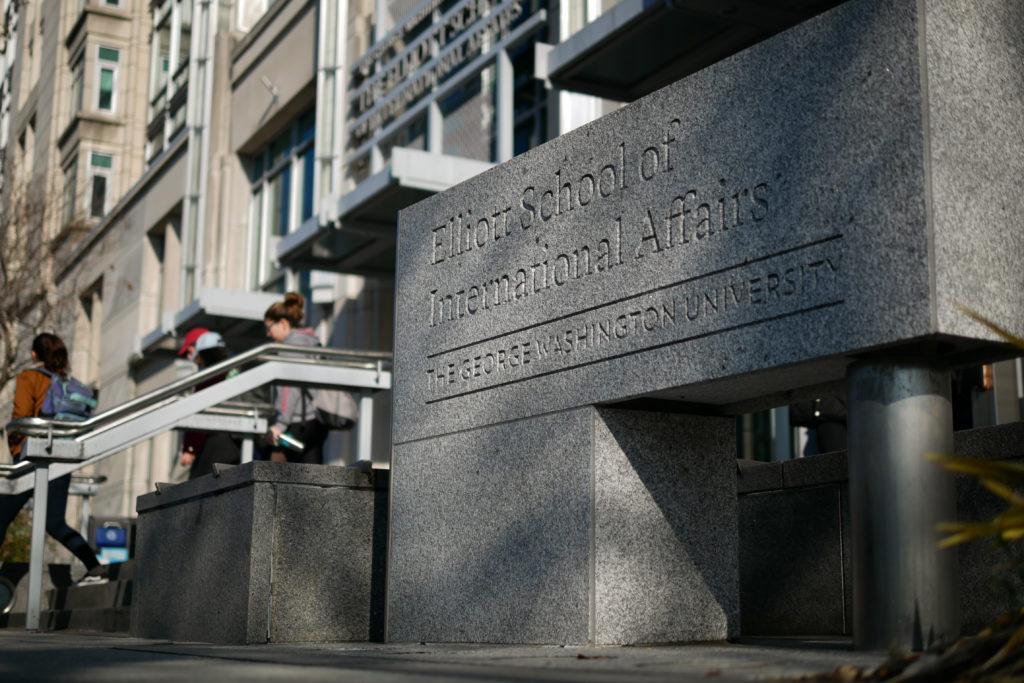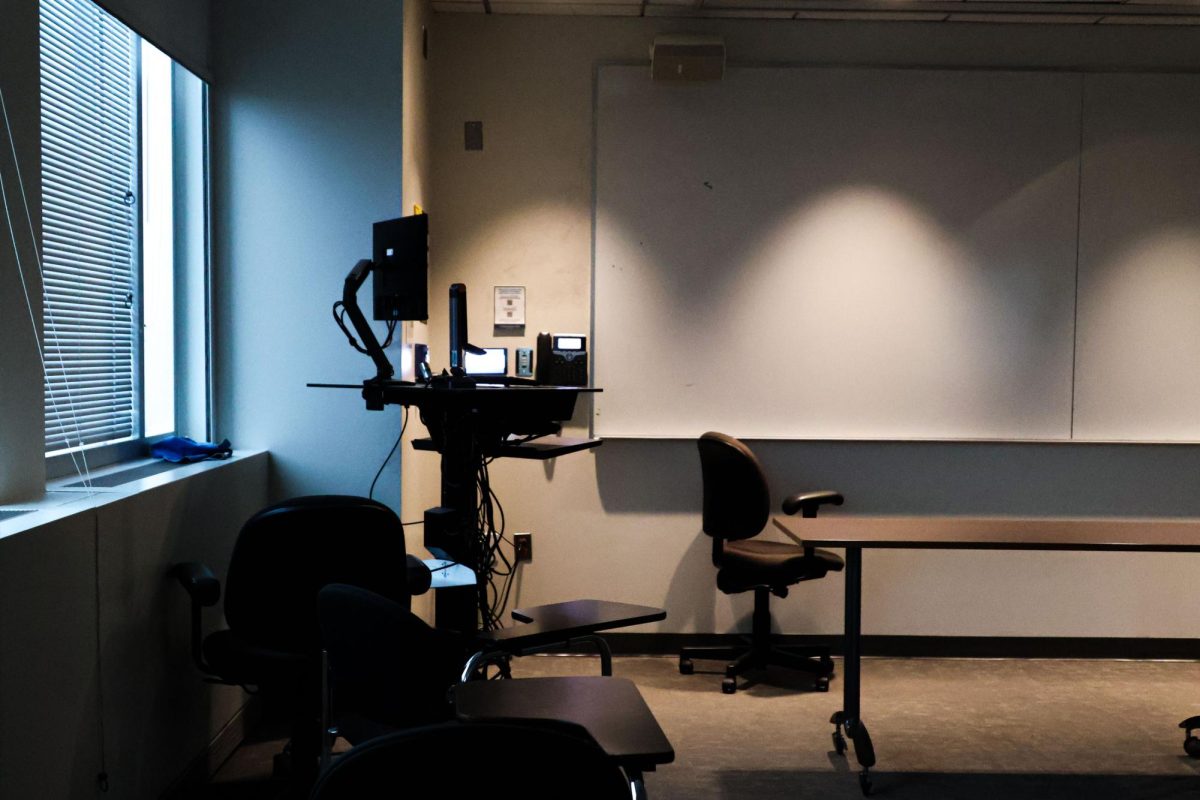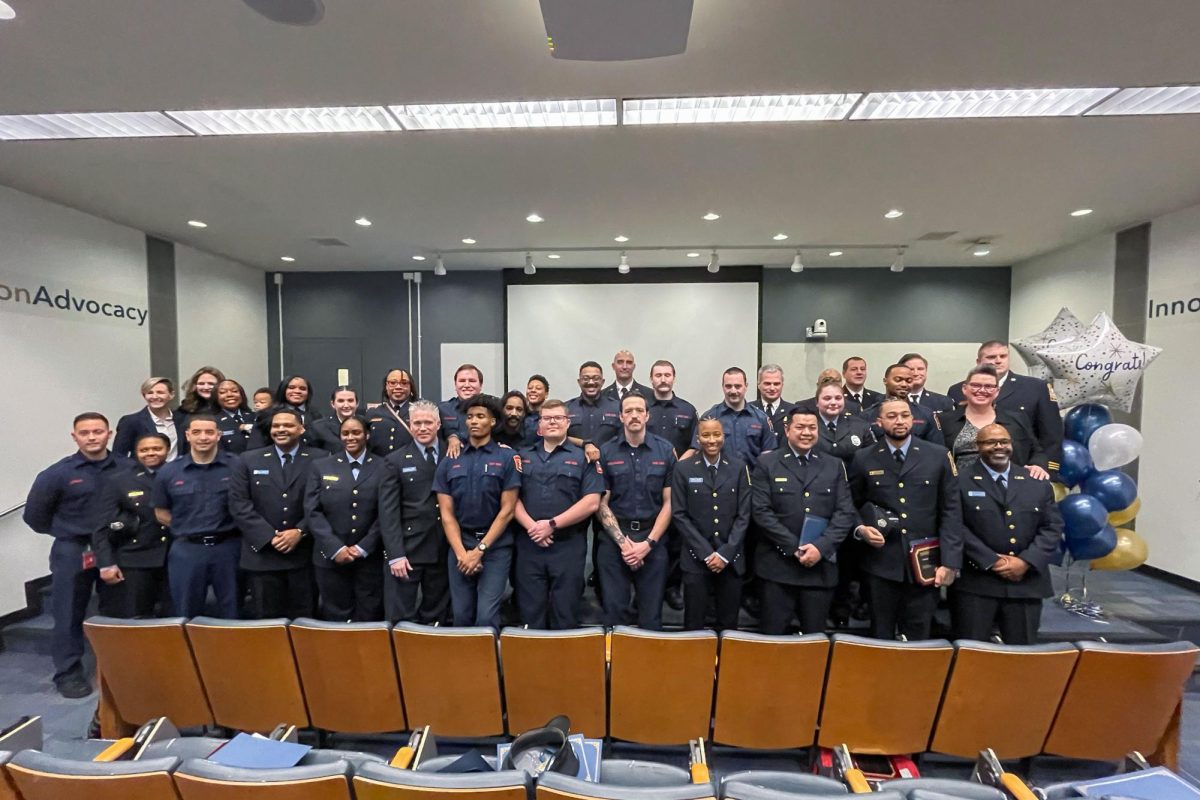Updated: Friday, May 26, 2023, at 5:07 p.m.
The Elliott School of International Affairs received a donation to grow the school’s Uyghur Studies Initiative starting next fall, which faculty say will promote the study of Uyghur culture outside of the political context of the abuses the group faces in China.
The $900,000 anonymous donation will allow the initiative to add courses on Uyghur culture and identity and expand faculty and graduate-level research in the area of Uyghur studies to bolster the Uyghur Studies Initiative in the Sigur Center for Asian Studies, according to a University release earlier this month. Faculty within the initiative said the donation will help grow students’ awareness of Uyghur history, arts and language at a time when the group’s culture is under threat of being destroyed by genocide, while national attention focuses on the human rights abuses that Uyghur people face at the hands of the Chinese government.
The Uyghur people are a mostly Muslim Turkic ethnic group in the Xinjiang region in northwestern China who speak a Turkic language and use the Arabic alphabet, with cultural traditions that include “vibrant” music and dances like the musical genre Muqam and reading and creating literature like poetry, dictionaries and encyclopedias, according to the Tarim Network and the World Uyghur Congress. The people are historically known for their role as “connectors” between Eastern and Western civilizations along the Silk Road.
University spokesperson Julia Metjian said while the endowment is “not nearly” large enough for officials to hire permanent faculty for the initiative, it allows for the addition of an adjunct language professor to teach Uyghur language classes. She said officials are “hoping” to offer three levels of Uyghur language classes — beginning through advanced — within the next three years.
Metjian also said the endowment is “strictly earmarked” for nonpolitical purposes and will support graduate-level research in the Uyghur humanities. She said in the past three years, undergraduate courses focusing on the Uyghur region have filled and professors have noticed an increasing number of students “very familiar” with the issues facing the Uyghur community in Xinjiang.
Governments and human rights organizations accused the Chinese government of committing genocide against the Uyghur people in 2021 after reports that the government targeted and imprisoned religious leaders, forcibly sterilized Uyghur women and detained some in “reeducation camps.”
Eric Schluessel, an assistant professor of history and international affairs pursuing research on Uyghur economic history, said the anonymous benefactor donated to the Uyghur Studies Initiative because they felt “confident” that the University’s history programs exploring Chinese and Central Asian culture would use the money to promote Uyghur cultural studies, which he said is not a “strong” focus in humanities studies, rather than political research.
“The donor specified this as well that the endowment is not here for political purposes, the endowment is specifically here to open spaces to talk about the arts, the humanities, things like history, literature,” Schluessel said.
Schluessel said the donation will fund a Beginning Uyghur Language class next fall and the University plans to expand Uyghur language classes “year by year.” He said seven students enrolled in the class so far and that Mustafa Aksu, a graduate of the Department of Central Eurasia Studies at Indiana University, Bloomington with a background in linguistics and language pedagogy, will teach the class for the first time at GW next year.
He said he found in his research that many Uyghur people hope to see people disseminate more information about the group’s creative and scholarly pursuits to support and bring awareness to the group’s culture outside of their persecution by the Chinese government.
“When I speak to members of the Uyghur diaspora, especially the young people under 30, the constant refrain is that there seems to be so much money and energy for politics and activism, but in some ways, what is really needed is a space to nurture the community, in the diaspora in exile,” Schluessel said.
Bruce Dickson, a professor of political science and international affairs who focuses on political dynamics in China, said the donation will also allow the initiative to begin offering fellowships for doctoral and masters students “presumably” for Uyghur studies and fund different public events.
He said students who deepen their understanding of Uyghur history, culture and language, as well as the political impact and significance of Uyghur culture, gain a better notion of international affairs. He said the chances of students being able to go to Xinjiang to “take advantage” of their studies in the field depends on when the Chinese government opens up those opportunities, and that they’re currently “close to zero.”
“At a time when issues in Xinjiang are more and more in the news, this program will help bring more attention, more understanding to the issue,” Dickson said.
Gregg Brazinsky, the director of the Sigur Center for Asian Studies and a professor of history and international affairs, said the Sigur Center for Asian Studies is also receiving funding through the National Resource Center, a program that provides grants to language and international studies centers, starting next year to focus on a broader initiative on Xinjiang, Tibet and Taiwan. He said the U.S. Department of Education selected GW to be a member of the East Asia National Resource Center Program and that the funding will help grow Uyghur studies classes.
He said officials plan to fund new Uyghur classes next year through the initiative and with “additional” funding from the NRC, but did not specify how much money the NRC will provide for the courses.
“We should be able to offer some robust classes and public facing programming related to Xinjiang and Uyghur, as this is also part of a broader initiative that’s being carried out by the Sigur Center for Asian Studies,” Brazinsky said.
Hannah Ellis, the president of the Uyghur Human Rights Initiative at GW Law, said the Uyghur Studies Initiative itself is a “great avenue” to provide Uyghur people with a space and opportunity to present Uyghur history and preserve their culture. Ellis said the Uyghur Human Rights Initiative plans on “interacting” with the Uyghur Studies Initiative and will start engaging in “more dialogue” with the initiative in the fall.
“There’s so much value that we gain from having diverse, unique perspectives spoken about and sometimes that can be in a very positive light in just terms of the history of Uyghur people and preserving their cultural practices,” Ellis said.
This post was updated to include the following:
The Hatchet updated this post to reflect that Mustafa Aksu is a graduate of the Department of Central Eurasia Studies at Indiana University, Bloomington. The Hatchet incorrectly reported that the Uyghur Studies Initiative is receiving funding from the NRC. The NRC will fund future Uyghur classes alongside the initiative. We regret this error. The Hatchet also updated this article to clarify that Brazinsky did not decline to say how much funding the NRC provides to the initiative because the initiative does not receive funding directly from the NRC. Brazinsky instead did not specify how much NRC funding will go toward new Uyghur classes.








